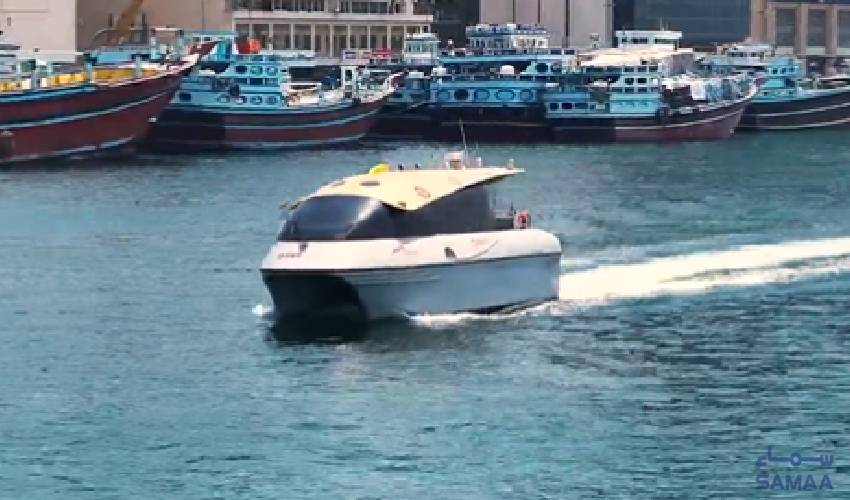
The trial operation, launched in collaboration with a private sector partner, aims to assess the performance and feasibility of integrating 3D-printed components in maritime transport. The use of 3D printing technology in constructing the electric abra not only reduces manufacturing time but also minimizes waste, aligning with Dubai’s broader environmental sustainability goals. This initiative underscores the city’s commitment to leveraging cutting-edge technology to enhance urban mobility while reducing its carbon footprint.
The electric abra’s design maintains the aesthetic appeal of traditional abras, preserving the cultural heritage of Dubai’s waterways. However, the internal components have been modernized to include an electric propulsion system, replacing the conventional diesel engines. This transition to electric power is expected to significantly reduce emissions and noise pollution, contributing to a cleaner and quieter environment for both residents and visitors.
The trial will rigorously evaluate various aspects of the electric abra's performance, including its operational efficiency, battery life, and maintenance requirements. The RTA has emphasized the importance of thorough testing to ensure the new technology meets the high standards of safety and reliability that Dubai’s public transport system is known for. Feedback from users and stakeholders will play a crucial role in refining the design and functionality of the electric abra before it is potentially rolled out on a larger scale.
Dubai’s ambitious vision for the future of transportation is not limited to the electric abra. The city has been at the forefront of adopting innovative mobility solutions, from autonomous vehicles to hyperloop systems. The RTA’s strategic plan includes numerous initiatives aimed at reducing traffic congestion, improving air quality, and enhancing the overall efficiency of the transport network. The introduction of the 3D-printed electric abra is a testament to Dubai’s proactive approach in exploring and implementing sustainable transport technologies.
The collaboration between the RTA and the private sector highlights the importance of public-private partnerships in driving technological advancements. By leveraging the expertise and resources of private companies, Dubai can accelerate the development and deployment of innovative solutions that benefit the community. This synergy is crucial for realizing the city’s ambitious goals and maintaining its position as a global leader in smart and sustainable urban development.
As the trial progresses, the RTA will closely monitor the electric abra’s performance and gather data to inform future developments. The insights gained from this trial will be invaluable in shaping the next generation of maritime transport solutions, not only in Dubai but potentially in other cities facing similar challenges. The success of this project could pave the way for wider adoption of 3D printing technology in the transportation sector, offering new possibilities for sustainable and efficient infrastructure development.
The launch of the world's first 3D-printed electric abra trial is a landmark event that reflects Dubai’s innovative spirit and dedication to sustainability. By integrating advanced technology with traditional design, the city is setting a new standard for modern transportation solutions. This initiative is a clear indication of Dubai’s forward-thinking approach and its commitment to building a smarter, more sustainable future for all.
Topics
UAE
